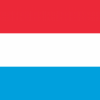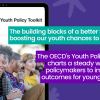IMS and Guidance in times of crisis - Luxembourg
The project underlying this publication responds to a pressing need: uncertainty and low confidence among young people in the face of a future marked by multiple crises (health, climate, geopolitics, economics). Led by IMS Luxembourg (with the support of the Ministry of National Education and the European Union), this project offers concrete tools to empower them.
About this initiative
Since 2023, the aim of IMS through this project has been to give and renew momentum, inspiration, and new tools to young high school students and their accompanying professionals.
The document produced at the end of the project highlights in particular that the digital revolution is one of the major forces, together with the green transition and the crises, that ‘redefine the jobs and skills required’. In this context, the essential digital competence is not only the use of tools, but the ability to filter and evaluate information.
- Critical navigation: Fact Sheet 4 highlights the need to “sharpen critical thinking” in order to “navigate a complex world where information abounds, particularly with the rise of artificial intelligence (AI)”.
- Discernment and decision-making: The challenge is to be able to ‘distinguish reliable sources from potential biases’ and to make informed decisions, a fundamental skill for young people’s adaptability and self-efficacy.
- Automation and human added value: Critical thinking is presented as an asset in an “increasingly automated professional environment”. This implies that if machines manage routine tasks, humans must master non-automatable skills, such as complex analysis, strategic thinking, and ethical thinking about the use of technologies.
Why is this a good practice?
In an increasingly interconnected world, collaboration and innovation necessarily require a functional and collaborative mastery of digital tools. With the anchoring of the project in IMS Luxembourg, an organisation dedicated to CSR and sustainability, the integration of digital technology goes beyond the technical aspect to focus on responsible use and wellbeing.
- Sense crisis and stress and exacerbated by the cognitive overload linked to the constant flow of digital information and notifications. ‘Digital disconnection’ is encouraged, to control stress and cultivate emotional self-regulation.
- In a CSR approach, the development of digital skills cannot ignore the issue of the inclusion and environmental impact of technologies.
- Digital skills (mastering tools, coding, analysing data) are essential levers for problem solving and the adoption of project mentality.
Impact of the project
- 8 2-hour workshops around 8 key skills (to better experience uncertainty and develop transversal skills)
- 220 young people touched, inspired and equipped to imagine their futures
- 17 workshops and actions carried out in the field
- 7 partner high schools engaged
- 10 testimonials from companies and associations who came to share their reality
- 2 events crossing staff of high schools and companies, i.e. 200 professionals mobilized
- 1 toolkit in 4 languages (French, English, German, Luxembourgish) to perpetuate and share to as many people as possible the learnings and good practices of this project
By broadening this approach with the overall mission of IMS Luxembourg (which promotes sustainable development and corporate social responsibility), we understand that digital skills are seen not only as technical, but above all as tools for ethical adaptation in a changing world.




